Please pull out your magic wands, we shall practice some spellcasting today. What? This isn’t Hogwarts?
Oh well, anyway, if we have priority or an effect allows us to do so at other time, we can cast a spell. Isn’t that wizardry? That is what they write on the cards now anyhow, “cast a spell”. We shall use this term, but remember that when a card says “play a spell”, it presently means casting a spell, while cards that say “play a card” (such as Windbrisk Heights) assume either “casting a spell” or “playing a land”, depending on the available options.
It was to a purpose that the little blockheads from the afore-mentioned school of witchcraft and wizardry studied to use magic for seven long years. Our Magic isn’t simple either.
Before we talk about casting spells, let's read the rules that allow or prohibit it.
601.3. A player can begin to cast a spell only if a rule or effect allows that player to cast it and no rule or effect prohibits that player from casting it.
601.3a. If an effect prohibits a player from casting a spell with certain qualities, that player may consider any choices to be made during that spell's proposal that may cause those qualities to change. If any such choices could cause that effect to no longer prohibit that player from casting that spell, the player may begin to cast the spell, ignoring the effect.
Example: A player controls Void Winnower, which reads, in part, "Your opponents can't cast spells with even mana values." That player's opponent may begin to cast Rolling Thunder, a card whose mana cost is {X}{R}{R}, because the chosen value of X may cause the spell's mana value to become odd.
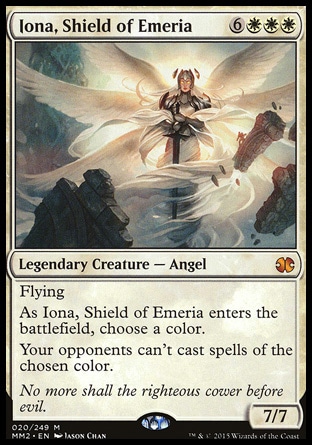
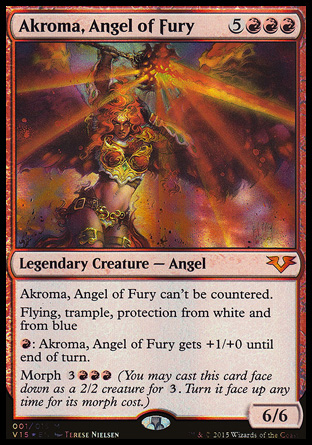
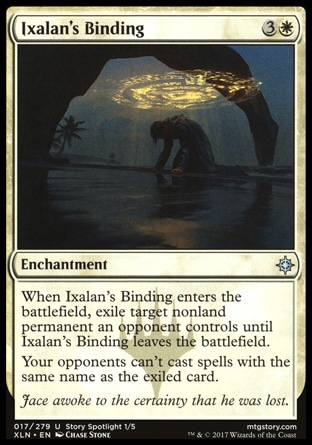
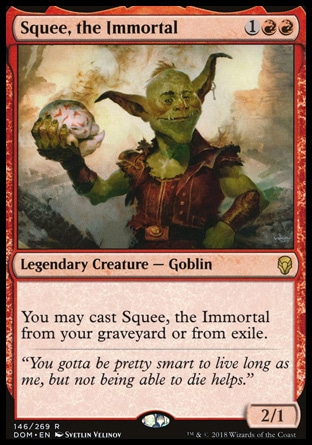
You can not cast Squee, the Immortal, if it exiled by the trigger of Ixalan's Binding.
601.3b. If an effect allows a player to cast a spell with certain qualities as though it had flash, that player may consider any choices to be made during that spell's proposal that may cause that spell's qualities to change. If any such choices could cause that effect to apply, that player may begin to cast that spell as though it had flash.
Example: An effect says that you may cast Aura spells as though they had flash, and you have a creature card with bestow in your hand. Because choosing the bestow ability's alternative cost causes that spell to become an Aura spell, you may legally begin to cast that spell as though it had flash.
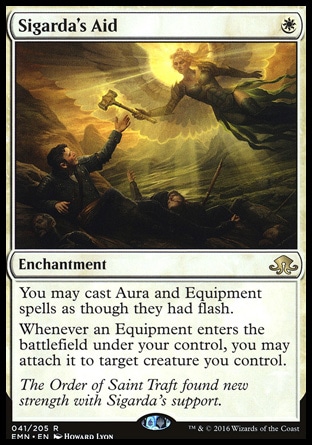
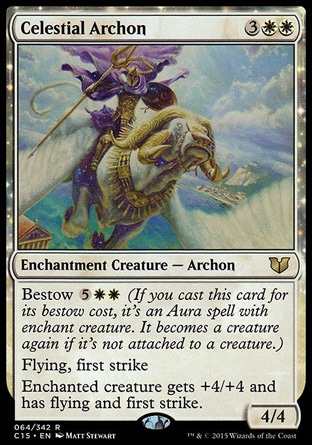
If you control Sigarda's Aid you can start casting Celestial Archon as an aura any time you have priority.
601.3e. If a rule or effect states that only an alternative set of characteristics or a subset of characteristics are considered to determine if a card or copy of a card is legal to cast, those alternative characteristics replace the object's characteristics prior to determining whether the player may begin to cast it.
Example: Garruk's Horde says, in part, "You may cast the top card of your library if it's a creature card." If you control Garruk's Horde and the top card of your library is a noncreature card with morph, you may cast it using its morph ability.
Example: Melek, Izzet Paragon says, in part, "You may cast the top card of your library if it's an instant or sorcery card." If you control Melek, Izzet Paragon and the top card of your library is Giant Killer, an adventurer creature card whose Adventure is an instant named Chop Down, you may cast Chop Down but not Giant Killer. If instead you control Garruk's Horde and the top card of your library is Giant Killer, you may cast Giant Killer but not Chop Down.
Casting a spell is a long and complicated process, strictly ordered and finalized only after all required conditions are met.
601.2. To cast a spell is to take it from where it is (usually the hand), put it on the stack, and pay its costs, so that it will eventually resolve and have its effect. Casting a spell includes proposal of the spell (rules 601.2a-d) and determination and payment of costs (rules 601.2f-h). To cast a spell, a player follows the steps Step: A subsection of a phase. See section 5, "Turn Structure." 5. Turn Structure listed below, in order. A player must be legally allowed to cast the spell to begin this process (see rule 601.3). If a player is unable to comply with the requirements of a step listed below while performing that step, the casting of the spell is illegal ; the game returns to the moment before the casting of that spell was proposed (see rule 722, "Handling Illegal Actions").
Step 1: putting on the stack (601.2a)
“I give you… Icarus”
Die Another Day
Everything starts with announcing a spell and putting on the stack the card or the copy of a card. At the Step of announcing a spell, the player decides and announces:
- Whether he or she plays the spell from a zone other than the hand, and if so, which effect is used to do so:
- Flashback ability of a card in the graveyard;
- the effect of Daxos of Meletis for cards in Exile zone etc.
- Whether he or she plays a Morph face down. It’s quite obvious why this needs to be decided before putting a spell on the stack: this way, the Morph is put on the stack face down, owing to which it interacts differently with effects forbidding (or modifying the way) to cast certain spells (E.g. Grafdigger’s Cage).
- Which part of a split card will be played. For instance, when playing Fire // Ice, we put one half on the stack, and from this point onwards the game ignores the other until the spell leaves the stack.
- Whether the Fuse ability will be played for a split card with Fuse.
Step 2: determining the status quo (601.2b)
“If I am to choose between the two evils, it’s not so bad already”
Constantine Melikhan
The next step of our magical creation process is to make a choice related to the following properties of a spell or ability:
- Modality. This is where we decide which two things exactly will Cryptic Command do.
- Splice. This is where we inform our opponent about what we are eager to splice onto what and reveal the cards from our hand. To refresh your knowledge on this subject, ref. CR 702.46.
- Additional, alternative and special costs. Here is where we confess our desire to pay for Overload or Bestow, or cast a spell by paying a cost other than with mana.
Please note this part of rule 601.2b:
(601.2b) A player can't apply two alternative methods of casting or two alternative costs to a single spell.
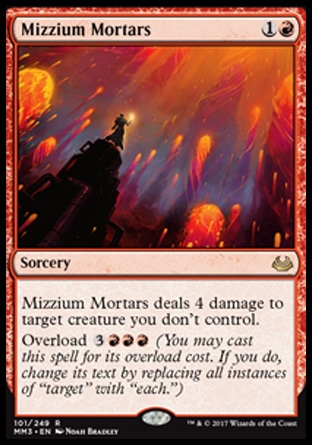
If your Force of Will is in your graveyard, and you give it Flashback with Snapcaster Mage’s ability effect, you will not be able to cast it with its “innate” alternative cost, because Flashback already is an alternative cost, and two such costs may not be used at any one time.
If your Mizzium Mortars gain Flashback this way, you cannot cast them for their Overload cost.
- X. This is where you determine the enigmatic X. As well as any other variable values a spell might have.
- “Hybrid mana”. If the cost of the spell contains hybrid mana symbols, the player announces which equivalent cost he or she is about to pay.

To cast Spectral Procession, you may pay either {WWW}, {2WW}, {4W}, or {6}.
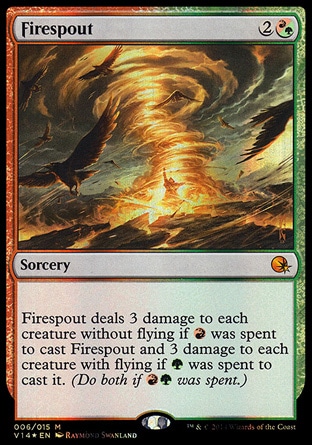
You need to pay either {2G} or {2R} for Firespout. Depending on the color of mana used this way, the effect will be different. In order to “hit them all” you need to pay {1GR}.
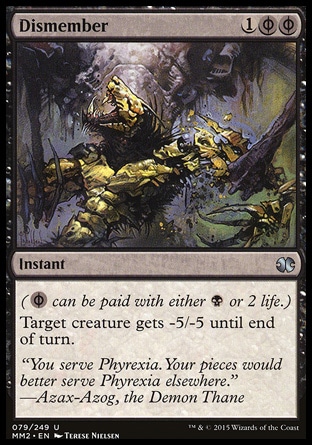
With Dismember, you may pay either {1BB}, {1B} + 2 life, or {1} + 4 life.
Thus, the second Step is where we determine what the spell will do and how it will be paid.
(601.2b) Previously made choices (such as choosing to cast a spell with flashback from a graveyard or choosing to cast a creature with morph face down) may restrict the player's options when making these choices.
Step 3: targets (601.2c)
“I believe the target of anything in life should be to do it so well that it becomes an art”
Arsene Wenger
It is about time we pass on to targets. First, the required number of targets is determined, then specific “subjects” are chosen. Each target must be legal when announcing it. Besides, the same object, player or zone may not be chosen multiple times for one instance of the word “target” in the text of a spell or ability. On the contrary, if the word “target” is used multiple times, the same object, player or zone may be used multiple times per instance of that word (as long as they satisfy the criteria of targeting).
E.g.:

To cast Hex, you will need to target six different creatures, no less.
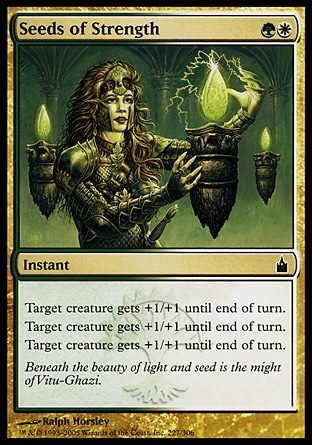
When playing Seeds of Strength, you can choose the same creature three times.
(601.2c) Example: If a spell says “Tap two target creatures,” then the same creature can’t be chosen twice; the spell requires two different legal targets. A spell that says “Destroy target artifact and target land,” however, can target the same artifact land twice because it uses the word “target” in multiple places.
If the target appears only in case an additional cost (such as a Buyback or Kicker) or an alternative cost (Bestow) was paid, and the player has not announced his or her wish to pay that cost, it is not possible to choose those targets. The spell is cast as though it did not require those targets.
For instance,
- Dwarven Landslide announced without Kicker is cast with one target.
- If you cast Boon Satyr, it has a target only if you decided to pay its Bestow cost (it becomes an aura spell in that case).
(601.2c) If any effects say that an object or player must be chosen as a target, the player chooses targets so that he or she obeys the maximum possible number of such effects without violating any rules or effects that say that an object or player can’t be chosen as a target.
The chosen players, objects or zones become the targets of the spell. At this moment, triggered abilities saying “when [something] becomes the target of a spell” trigger. For example, Illusionary servant’s ability. However, these abilities will go onto the stack only after the entire process of casting a spell has been finished. Ref. Priority, Stack, Turn structure.
Step 4: splitting or dividing an effect (601.2d)
“Divide each difficulty into as many parts as is feasible and necessary to resolve it”
Rene Descartes
Divide et empera: when each target is about to fall under some effects after they are chosen at the previous Step, it is time to announce what is going to happen to them.
This is where we split things around:
601.2d. If the spell requires the player to divide or distribute an effect (such as damage or counters) among one or more targets, the player announces the division. Each of these targets must receive at least one of whatever is being divided.
E.g.:

We split damage from Conflagrate. By the way, if the target is announced for Conflagrate, it has to be assigned at least one damage. I.e. one cannot announce the target for Conflagrate and deal 0 damage to it.
However, if you read the text of Fireball closely, you will realize that its effect does not require dividing damage from the caster — the damage is divided equally between the remaining legal targets, and that it happens on resolution.
Step 5: legality check (601.2e)
“Am I a trembling creature, or have I the right?”
Fedor Dostoyevsky
Based on the previous announcement, the game checks whether the announced spell may be legally cast at the moment. This is when the time (including those depending on the card type) and other limitations apply. If the announced spell is considered illegal, the game is backed up to the moment when the spell to be cast was announced (ref. rule 717 “Handling Illegal Actions”).

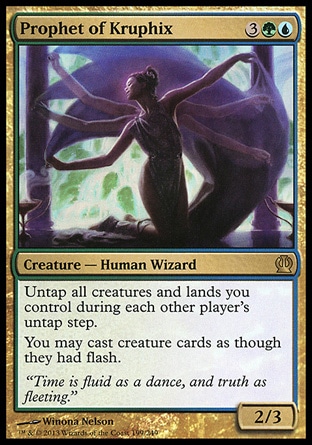
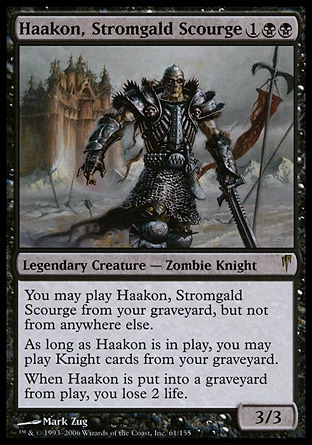
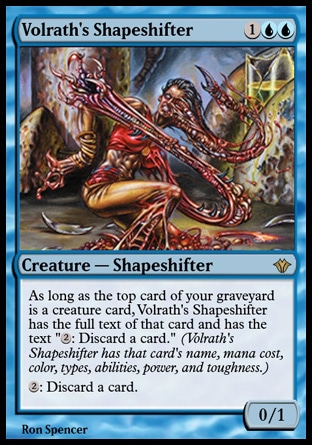
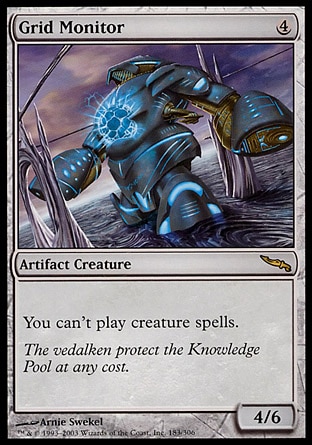
You control Volrath’s Shapeshifter. The top card of the graveyard is Haakon, Stromgald Scourge, the next one is Grid Monitor. You attempt to cast Haakon. First, you put it on the stack. As you do, Volrath’s Shapeshifter suddenly gains Grid Monitor’s ability: “You can’t cast creature spells”.
So, at the 601.2e the game sees that the spell can’t be cast legally. Haakon will have to return to the graveyard.
Step 6: determining the total cost (601.2f)
“You know you’re getting old when the candles cost more than the cake”
Bob Hope
It is time to present the bill, i.e. to determine the full cost, taking all effects into account.
(601.2f) The total cost is the mana cost or alternative cost (as determined in rule 601.2b), plus all additional costs and cost increases, and minus all cost reductions... Once the total cost is determined, any effects that directly affect the total cost are applied.
It’s worth mentioning here that effects reducing its cost cannot “drop it below surface”, i.e. the total mana cost cannot be below {0}.
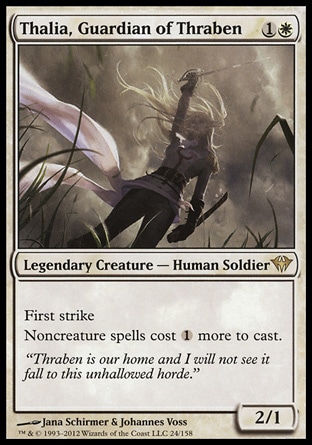
Thalia, Guardian of Thraben increases the cost of non-creature spells by {1}. This effect is applied even in case when you play a spell “without paying its mana cost”. You do not pay its mana cost, but you ought to pay the increase of {1}.
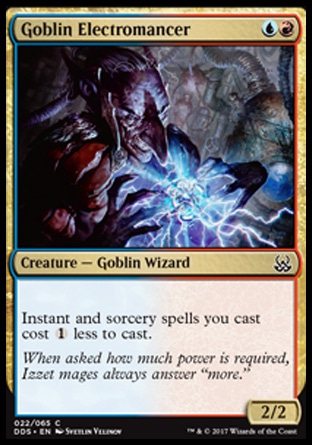
The effect of Goblin Electromancer reduces the cost in the total cost part. It is applied even if the player chose to pay an alternative cost — flashback, overload etc.
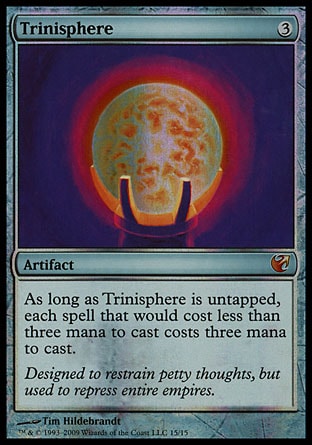
Trinisphere checks the total cost after applying all cost increases and reductions (such as Thalia, Guardian of Thraben’s effect) and accounts the full mana part of the total cost.
After the total cost is determined it is locked in, i.e. it doesn’t change from this point onwards regardless of what happens further in the game:
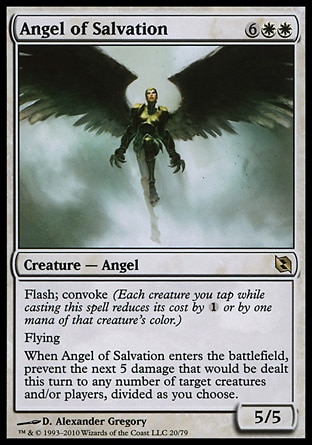
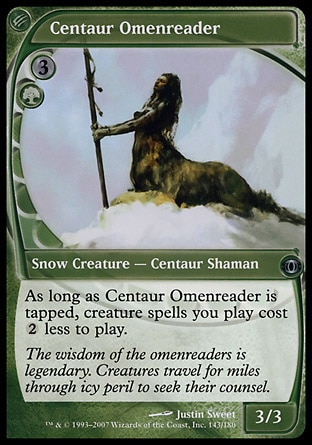
If you tap Centaur Omenreader to pay for Angel of Salvation “using convoke”, the Angel’s cost will not be reduced by {2}, as the Centaur will only become tapped during the Step of paying for the spell (Step seven in our class, rule 601.2g), when the cost of a spell cannot change.
Step 7: activating mana abilities (601.2g)
If the total cost includes any mana payments, it is time to activate mana abilities. Note that this is the moment where Wild Cantor needs to be sacrificed to produce mana (and for that reason, it will no longer be available to “tap it for convoke” during the Step of paying, which is yet to come).
If the cost does not include a mana payment, a player may not activate mana abilities at this point.
Step 8: payment (601.2h)
“Kill the Bill”
Tarantino
Finally, the spell is paid.
601.2h The player pays the total cost in any order. Partial payments are not allowed. Unpayable costs can’t be paid.
Example: You cast Asltar’s Reap, which costs 1B and has an additional cost of sacrificing a creature. You sacrifice Thunderscape Familiar, whose effect makes your black spells cost 1 less to cast. Because a spell’s total cost is “locked in” before payments are actually made, you pay B, not 1B, even though you’re sacrificing the Familiar.
Step 9: the spell is cast (601.2i)
Only after the first seven steps are completed, the spell is considered cast. At this moment, the triggers saying “whenever a player casts a spell.” go off: Blind Obedience, Dragonstorm, Bloodbraid Elf, Fabled Hero.
The spell is cast. Period
The cast spell is in the stack awaiting for its turn to resolve. Now, neither casting spells with Split second, a suddenly popped out Teferi under an opponent’s control, effects forbidding to cast spells (Silence), nor effects influencing the cost of spells can change anything here — the spell is already cast.
Game play error — Game rule violation
Such an error is committed, among other cases, when a spell is played incorrectly:
- paid mana wasn’t enough to pay for the spell (Thalia, Guardian of Thraben sends greetings);
- paid mana is of wrong color(s);
- the target chosen while casting was illegal;
- the cost wasn’t paid in full (for instance, a Merfolk wasn’t revealed while casting Silvergill Adept after choosing this option of an additional cost) etc.
If the error was noticed immediately, the spell is “backed up”, including returning the mana-sources to their state prior to casting the spell. If this grave error wasn’t spotted at once, be prepared to have everything left as is, even if it was a Wrath of God cast with green mana.
The “backup” decision may be taken solely by the head judge based on the complexity of the game state and the time elapsed since the error took place:
If the infraction falls into one of the following categories, and only into that category, perform the fix specified unless a simple backup is possible:
- If a player made an illegal choice (including no choice where required) for a static ability generating a continuous effect still on the battlefield, that player makes a legal choice.
- If a player forgot to draw cards, discard cards, or return cards from their hand to another zone, that player does so.
- If an object is in an incorrect zone either due to a required zone change being missed or due to being put into the wrong zone during a zone change, the identity of the object was known to all players, and it can be moved with only minor disruption to the current state of the game, put the object in the correct zone.
- If damage assignment order has not been declared, the appropriate player chooses that order.
For each of these fixes, a simple backup may be performed beforehand if it makes applying the fix smoother.
Otherwise, a backup may be considered or the game state may be left as is.
For most Game Play Errors not caught within a time that a player could reasonably be expected to notice, opponents receive a Game Play Error — Failure to Maintain Game State penalty. If the judge believes that both players were responsible for a Game Rule Violation, such as due to the existence of replacement effects or a player taking action based on another players instruction, both players receive a Game Play Error — Game Rule Violation.
For example, if a player casts Path to Exile on an opponent’s creature and the opponent puts the creature into the graveyard, both players have committed this infraction.
If a spell was played legally, there is no reason to back it up. Nor is there to allow a player “retap mana”. I would like to mention here two rules that appeared for one only card, Chromatic Sphere:
First, in the situation where you play with the top card of your library revealed, and the card is moved from the library as a process of casting a spell or activating an ability, the card just below it won’t be revealed until the spell or ability has been cast or activated.
Second, if you draw a card in process of casting a spell or activating an ability, you may only look at it when that spell or ability has been cast. This card is considered to be in your hand, but in fact, it will lie on the table in front of you until you are allowed to look at it.
And now, your favourite part!
Homework
May Storm Sculptor be cast if you control no creatures?
Definitely. Storm Sculptor only has a triggered ability that triggers as it enters the battlefield which will happen much later.
A player attacks with 3 creatures, then activates Windbrisk Heights’ ability. May the “hidden” creature be cast? What happens if a land had already been played that turn?
The creature may be cast.
608.2f. …If an effect specifically instructs or allows a player to cast a spell during resolution, he or she does so by putting that spell on top of the stack, then continuing to cast it by following the steps in rules 601.2a–h, except no player receives priority after it’s cast.
The land may be played too, as long as it’s your turn and no land has been played before that point, or an effect exists that would allow you to play additional lands. If a land has been played this turn, Windbrisk Heights’s ability will do nothing on resolution and the land will remain exiled, awaiting the next opportunity to be played.
305.3. A player can’t play a land, for any reason, if it isn’t his or her turn. Ignore any part of an effect that instructs a player to do so. A player can’t play a land, for any reason, if the number of lands the player can play this turn is equal to or less than the number of lands he or she has already played this turn. Ignore any part of an effect that instructs a player to do so.
You have played in this order this turn: 2 Lotus Bloom, 3 Rite of Flame, Ground Rift, 2 Seething Song and Dragonstorm. 2 copies of Ground Rift were countered by Cancel. The opponent has not cast anything else. How many dragons are threatening to invade the battlefield under your control?
Eleven. Note that copies generated by Storm are not cast, and therefore, do not count towards the Storm count. :)
The cunning opponent controls Grafdigger’s Cage. You control Future Sight. The top card of your library is a Zoetic Cavern. Can you play it as a land? Can you cast is as a Morph?
You may play Zoetic Cavern as a land, provided it is your main phase, the stack is empty and you have not played the allowed number of lands this turn. You may not cast Zoetic Cavern as a morph. That would fall under Grafdigger’s Cage’s limiting effect.
You cast Bloodbraid Elf and exile Lotus Bloom as Cascade resolves. Can you play it? Can you suspend it?
The effect of Cascade creates an alternative cost for Lotus Bloom:
117.9. Some spells have alternative costs. An alternative cost is a cost listed in a spell’s text, or applied to it from another effect, that its controller may pay rather than paying the spell’s mana cost. Alternative costs are usually phrased, “You may [action] rather than pay [this object’s] mana cost,” or “You may cast [this object] without paying its mana cost.” Note that some alternative costs are listed in keywords; see rule 702.
I.e. if you decide to cast the exiled card, the mana cost, whatever it was, if it was there at all, doesn’t matter to the game any longer. It is possible to cast Lotus Bloom with Cascade. Note that the last triggered ability of Suspend also creates an alternative cost for the spell (when the last time counter is removed).
However, you may not suspend Lotus Bloom — this ability works only when the card is in your hand.
After playing Windbrisk Heights on turn one, you hid Serra Avenger away. It is currently turn three, and you attack with three creatures and activate Windbrisk Heights’ second activated ability. Can you get the Angel “for granted”?
In this case we are dealing with one of Magic’s Golden rules. On one hand, Windbrisk Heights’ effect allows us to cast a creature spell off the usual time limits, on the other, Serra Avenger’s effect says it may not be played in the first three turns. The forbidding effect has the upper hand.
101.2 When a rule or effect allows or directs something to happen, and another effect states that it can’t happen, the “can’t” effect takes precedence.
Example: If one effect reads “You may play an additional land this turn” and another reads “You can’t play land cards this turn,” the effect that precludes you from playing lands wins.
The cunning opponent controls Battlewand Oak, plays a Forest, then casts Treefolk Harbinger, which you counter with Familiar’s Ruse. How “fat” a Battlewand Oak are you expecting to attack you?
5/7. After the spell has been cast it has three ways to go: to resolve, to be countered or to be exiled from the stack. Whichever happens, the spell has already been cast. The trigger “Whenever you cast a Treefolk spell, Battlewand Oak gets +2/+2 until end of turn” has happened.
You cast Void and choose “four” the opponent reveals a Dead // Gone. Does she discard it?
New rules tells us “Yes”. Detailed information about mana cost and other characteristics of split cards may be found in the article about Fire // Ice.
You cast Void, and an opponent responds with Imp’s Mischief targeting you. Who chooses the number?
The Mischief only changes the target. You are still in contol of the spell, so you are to choose the number.
You control a face-down Vesuvan Shapeshifter, a Chronatog Totem and a Lotus Bloom. Your hand is empty. The cunning opponent casts Void, having the malicious intent to rid the world of you Shifter. Can you disrupt her evil plan? What number does the opponent need to choose to make you lose the greatest number of permanents?
You need to remember that the number for Void is chosen on resolution. I.e. regardless of whether you keep the Shifter face down or copy a creature — she will always be able to pick the right number.
Depending on what the Shifter’s mana cost will be as Void resolves, it may be one or two permanents. Either way, the Shifter’s mana cost is the correct solution. Let me remind you that the mana value of a Morph and a permanent without a mana cost is zero. The Shifter’s mana value will be equal to the mana value of the creature it copied.
An opponent casts Death Rattle by using Delve, exiling 5 cards from his graveyard. You counter Death Rattle with Scattering Stroke and win the Clash. How much mana do you gain this way?
The total cost is {5}{B}, part of which was played with exiling cards from graveyard. But the mana value has not changed because of that, it is 6!
Here is a true story from a Finnish FNM for dessert. A player cast both halves of Rise // Fall and resolved them. The spectators who witnessed this phenomenon called for a judge. What would you do in a judge’s place?
The actual judge was young and inexperienced, he “backed up” Rise and made the player cast Fall.
In reality we have an illegally played spell.
Since FNM is a Regular REL event, we follow the recommendations given in “Judging at Regular REL”:
Usually the least disruptive option is to leave the game as it is after fixing anything that is currently illegal (e.g. an Aura enchanting an illegal permanent). If the error involved a player forgetting to draw or discard cards, have them perform the appropriate action now. Otherwise, if the error was caught quickly and rewinding is relatively easy, you may undo all the actions back to the point that the illegal action happened. This can include returning random cards from the hand to the library to undo card draws (though don’t shuffle the library if you do this), untapping permanents and undoing combat. This can be very disruptive where lots of decisions have been made or hidden information has been revealed since the illegal action, so don’t go crazy with this!
In a tournament with Competitive REL or higher, such an error falls under the category Game Play Error — Game Rule Violation. Being a floor judge, we request the head judge’s permission to back up the game (which in this situation is possible when a — you were called immediately after this disgrace happened; b — it is not difficult to do the necessary drawbacks). Being a head judge, we authorise the back up.
We roll each action back up to the point where the spell was announced (that’s when the error happened), and allow the players to do their thing. Do not forget to explain how this sort of spells is played.
Besides, both players are issued a “Warning”. The active player is warned for Game Play Error — Game Rule Violation, the non-active one — for Game Play Error — Failure to Maintain Game State. An attentive reader will wonder what was the opponent’s fault. Thing is, both players are responsible for what happens in the game. In this case, the opponent had plenty of time to notice the error and to prevent it. Another thing worth mentioning here is that the penalties for this kind of error do not get upgraded, which, undoubtedly, needs to be reminded to the players so that they don’t fidget, especially in tournaments with higher REL, when penalties matter a lot.
As unsupervised work, I propose to you the following problem:
A player plays Cryptic Command:
— “bounce” Runed Halo
— Negate the command
— Negate the negate
— Alright
— So?
— Juuuuudge, my opponent never chose the second mode for command!
— Well, tap’em all, of course!
What are your actions?
Translated by Witas Spasovski

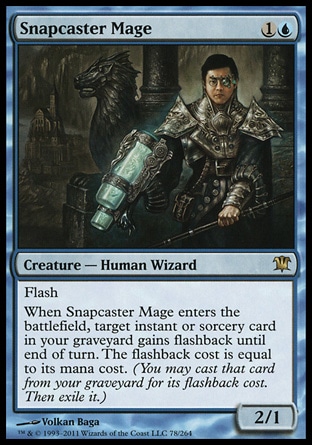
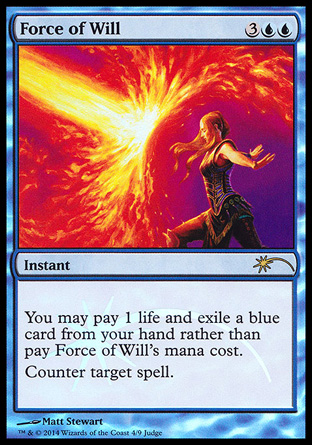
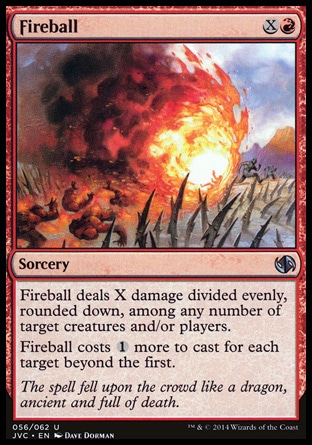
If you choose red for Iona, Shield of Emeria, your opponents can start casting Akroma, Angel of Fury as a Morph, because morph spells are colorless.